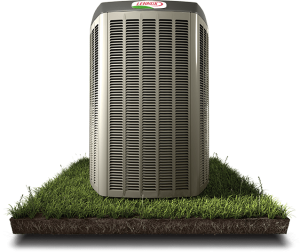
Heating, ventilation, and air conditioning (HVAC) systems play a crucial role in maintaining a comfortable indoor environment in homes and commercial buildings. While HVAC systems are essential for providing thermal comfort, they can also be a significant source of energy consumption and costs. Proper installation of HVAC systems is key to maximizing energy efficiency and saving money on utility bills in the long run.
The Importance of Proper HVAC System Installation
Proper installation of HVAC systems is essential for ensuring optimal performance and energy efficiency. When HVAC systems are installed incorrectly or haphazardly, it can lead to a range of issues that can impact energy consumption and costs. Here are some reasons why proper HVAC system installation is crucial:
1. Energy Efficiency
- Properly installed HVAC systems operate more efficiently, consuming less energy to heat or cool indoor spaces.
- Efficient operation leads to lower energy bills and reduced energy consumption, saving you money in the long term.
2. System Longevity
- Proper installation ensures that HVAC systems function correctly, reducing the likelihood of breakdowns and malfunctions.
- Regular maintenance and fewer repairs can prolong the lifespan of your HVAC system, saving you money on costly replacements.
3. Indoor Comfort
- Well-installed HVAC systems provide consistent and even heating or cooling throughout indoor spaces, ensuring optimal comfort for occupants.
- Proper airflow and temperature regulation prevent hot or cold spots, improving overall indoor comfort levels.
Key Factors for Maximizing Energy Efficiency
Several key factors contribute to maximizing energy efficiency when installing HVAC systems. By paying attention to these factors, you can ensure that your HVAC system operates at peak performance while saving money on energy costs.
1. Proper Sizing
- Ensuring that your HVAC system is correctly sized for your space is crucial for efficient operation.
- An oversized HVAC system can lead to short cycling, increased energy consumption, and reduced comfort levels.
- An undersized system may struggle to heat or cool your space effectively, leading to higher energy bills.
2. Ductwork Design
- Well-designed ductwork is essential for efficient airflow and distribution of heated or cooled air throughout your space.
- Leaky or improperly insulated ducts can result in energy losses and reduced system efficiency.
- Proper ductwork design ensures that heated or cooled air reaches its intended destination without leakage or obstruction.
3. Location and Placement
- The location and placement of HVAC equipment can impact its efficiency and performance.
- Placing outdoor units in shaded areas can prevent overheating and improve system efficiency.
- Indoor units should be located centrally to ensure even distribution of air and optimal airflow.
Benefits of Energy-Efficient HVAC Systems
Investing in energy-efficient HVAC systems can offer a range of benefits beyond cost savings. Energy-efficient HVAC systems not only reduce energy consumption and utility bills but also contribute to environmental sustainability and indoor air quality.
1. Cost Savings
- Energy-efficient HVAC systems consume less energy, resulting in lower utility bills and cost savings over time.
- Efficient operation reduces the need for frequent repairs and maintenance, further saving money on operating costs.
2. Environmental Impact
- Reduced energy consumption by energy-efficient HVAC systems helps lower greenhouse gas emissions and environmental impact.
- By conserving energy, you contribute to a more sustainable and eco-friendly approach to heating and cooling your space.
3. Indoor Air Quality
- Energy-efficient HVAC systems often come with advanced filtration and ventilation technologies that improve indoor air quality.
- Proper ventilation and filtration systems remove pollutants, allergens, and contaminants from indoor air, promoting a healthier living environment.
Conclusion
Proper installation of HVAC systems is essential for maximizing energy efficiency, reducing costs, and ensuring optimal comfort in indoor spaces. By paying attention to key factors such as sizing, ductwork design, and equipment placement, you can enhance the performance of your HVAC system and save money on utility bills over time. Investing in energy-efficient HVAC systems not only offers cost savings but also contributes to environmental sustainability and indoor air quality. Make the smart choice today by prioritizing proper HVAC system installation for long-term energy efficiency and savings.
/cdn.vox-cdn.com/uploads/chorus_image/image/51867435/Eli_Preferred_Headshot.0.jpeg)
Leave a Reply
You must be logged in to post a comment.